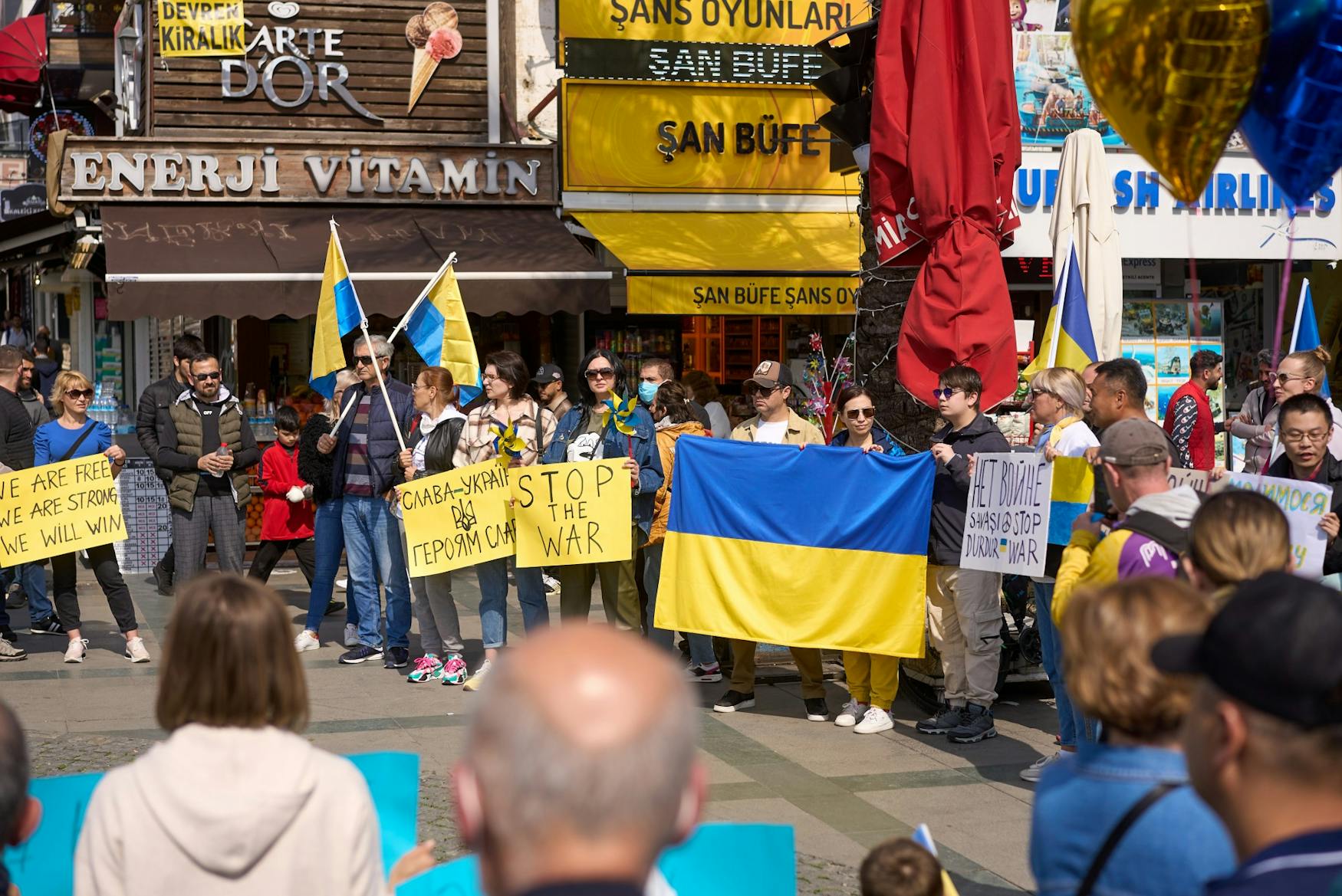The Justice interviews President Liebowitz about Russia-Ukraine War
“My heart goes out to our Russian and Ukrainian students and our faculty members,” Liebowitz said.
Prior to entering the field of higher education administration, University President Ron Liebowitz was deeply entrenched in the study of the former Soviet Union. His grandfather emigrated to the U.S. right before the Russian Revolution and “instilled in my brother and me a fascination with the history,” said Liebowitz in a March 7 interview with the Justice.
After this initial introduction to the field, Liebowitz studied economics and geography at Bucknell University, according to his biography on the University website. Liebowitz told the Justice that his research trip to the former Soviet Union in 1978 focused his efforts on continuing to study the region. He went on to graduate school at Columbia University, where he worked with a demographer who specialized in Russia and the Soviet Union. He continually visited the Soviet Union through the years, where he specifically focused on political geography — the relationship between state structure and nationalism, Liebowitz explained. While his time was centered in Moscow, Liebowitz visited all the republics of the former Soviet Union, including Ukraine.
The Justice began by asking President Liebowitz about the former Soviet Union, specifically his analysis of Russian President Vladimir Putin’s statement that the breakup of the Soviet Union was the biggest tragedy of the 20th century in his Feb. 21 speech to the Russian nation. “Only Putin and folks like him think it was the biggest tragedy of the 20th century,” Liebowitz said.
Putin is dreaming about the Russian empire prior to the creation of the Soviet Union, Liebowitz said. When Lenin established the Soviet confederation, he did so in order to bring the former Russian empire back together after its split in the civil war. With this confederate structure, Lenin drew boundaries around the republics and created the appearance of freedom for the locals. However, “what was superimposed on top of this political administrative structure was the unitary nature of the communist party,” Liebowitz said. On paper, it looked like a great confederation, but in reality, the communist party controlled all of the power.
Putin blames Lenin and Stalin for the creation of, what Putin believes to be, the Ukrainian “fake nation” and uses this argument to back up his claim.
From 1922-89, the years of the Soviet Union, the Soviets aimed for people to give up nation-specific allegiances and instead give their allegiance to the proletariat, or the working class. This never really worked because nationalism holds strong, Liebowitz said.
On the topic of the nationality question in Soviet successor states, Liebowitz explained that these nationalities existed before the Soviet Union, and when it fell apart, there was finally freedom to express these national and cultural identities. “Ukrainians have developed a very strong sense of nationalism in the last 30 years … Russia and Ukraine are separate entities, separate languages, [and] separate cultures.”
The Justice asked Liebowitz about East-West economic relations, as well as the effectiveness of current economic sanctions. In regards to history, Liebowitz explained that the breakup of the Soviet Union was an opening for the Russian economy and this created a “wild, wild East” in Russia. The shift from communism to liberalization and the privatization of state enterprises, property, and capital allowed for greater integration into the Western economy.
After the Russian economic meltdown in 1998, the East-West economic relationship has changed, Liebowitz said. “There is a lot more economic interaction, but it’s largely energy and natural resources.”
When asked whether he believes that current economic sanctions on Russia will have any effects, Liebowitz responded yes. This is partly because of the severity of the sanctions, he explained, and the relative weakness of the Russian economy also plays a role. “I do believe [the U.S.] needs to go further in terms of energy imports. I think that’s critical,” and would put ultimate pressure on the Russians, Liebowitz said.
While the West has imposed economic sanctions on Russia, they have not yet given direct military aid to Ukraine because of Putin’s threat of nuclear war if the West has any military intervention. “In normal times, it would be unfathomable to think of a nuclear war in Europe, but the way Putin has operated and acted gives me a little pause about whether or not he would use nuclear weapons on the field,” Liebowitz said.
The Justice asked whether, upon looking back at the history of the relationship between Russia and Ukraine, Liebowitz could have predicted a conflict or outcome of this sort. Liebowitz explained that if he were to go back to 1999 when Putin came into power, he would not have expected this. However, studying Russian history complicates his answer — except for a small period of time, Russia has never had deeply entrenched democratic institutions. “It doesn't surprise me, but it disappoints me,” he said.
The last question that the Justice asked was if Liebowitz believes this is a trigger point for a full scale Cold War between the West and Russia. Liebowitz firmly answered, “Yes … until and unless Putin is gone.”
On March 1, Liebowitz sent the Brandeis community an email in support of peace in Ukraine. He emphasized the importance of being a community that understands and supports the Jewish tradition of “seeking to repair the world.” Liebowitz expressed his hope for an end to needless human suffering and told the Justice, “my heart goes out to our Russian and Ukrainian students and our faculty members.”



Please note All comments are eligible for publication in The Justice.